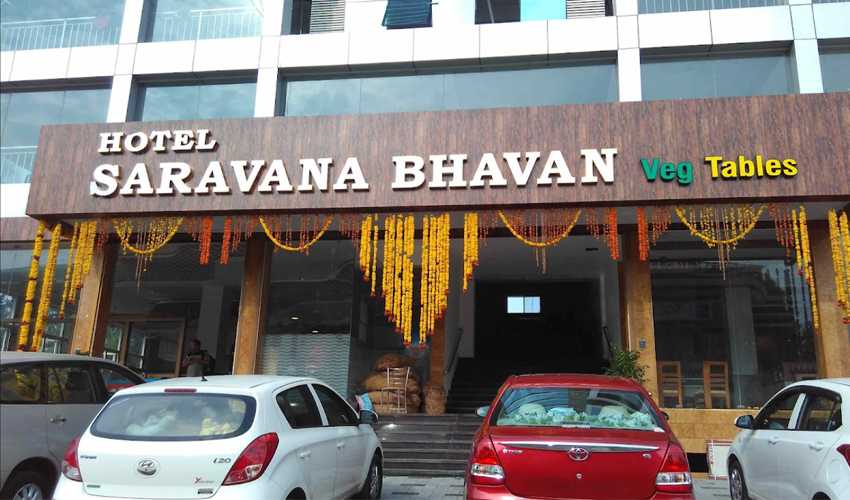Saravana Bhavan stands as one of the world’s most recognized and beloved South Indian vegetarian restaurant chains, with roots firmly planted in Chennai, India. Founded in 1981 by P. Rajagopal, it began as a humble eatery but soon grew to become a global ambassador of authentic South Indian cuisine. Today, with over 100 outlets spread across multiple countries, Saravana Bhavan symbolizes the rich culinary heritage of Tamil Nadu and the growing global love for Indian vegetarian food.
Origins and Early Days
The story of Saravana Bhavan starts with P. Rajagopal, who launched his journey in the food business after running a small grocery shop in K. K. Nagar, Chennai. Inspired by South India’s ubiquitous love for dosas, idlis, and other vegetarian delicacies, Rajagopal opened the first Saravana Bhavan restaurant in 1981. The initial days were challenging, with the business running at a loss for several months. What propelled the brand forward was its steadfast commitment to consistent quality, hygiene, and authenticity in every dish served.
Rajagopal’s vision was to offer a standardized South Indian dining experience, something that was missing in the early 1980s. Unlike many small mom-and-pop eateries scattered across the city, Saravana Bhavan focused on clean, neat surroundings and professional service, coupled with mouth-watering idlis, crisp dosas, and flavorful sambars and chutneys. This commitment helped build customer trust and loyalty in Chennai, making Saravana Bhavan quickly popular.
Expansion and Brand Building
By the late 1980s and 1990s, as Saravana Bhavan expanded across Chennai and other parts of South India, it shaped the model of a fast-food chain serving Indian cuisine, much like western fast food giants. Rajagopal’s observations of international models such as McDonald’s during a visit to Singapore inspired him to bring efficiency, standardization, and franchising into the Indian restaurant sector. This allowed Saravana Bhavan to scale rapidly and ensure the same taste and quality at every outlet.
In 2000, the brand took a significant leap by opening its first international branch in Dubai, a key hub with a dense Indian expatriate population. This global expansion was part of a larger strategy to cater to South Asians living abroad who craved authentic flavors from home. Today, Saravana Bhavan outlets are found in over 28 countries, including the United States, Canada, United Kingdom, Australia, Singapore, and many Middle Eastern and European nations. The international branches mostly serve the diaspora but have also gained acceptance among locals curious about authentic Indian vegetarian cuisine.
Menu and Culinary Excellence
The Saravana Bhavan menu features a rich array of South Indian dishes that are both traditional and universally loved. Signature items include soft idlis served with an assortment of chutneys and sambar, crispy dosas (thin crepes made from fermented rice batter), vadas (savory fried doughnuts), and thalis (complete meal platters). The chutneys—especially coconut chutney and tomato chutney—are considered legendary by regular patrons, often cited as the “soul” of Saravana Bhavan’s distinctive taste.
Apart from South Indian vegetarian fare, many outlets also offer North Indian snacks, sweets, bakery items, and beverages, ensuring a full meal experience. The brand’s insistence on fresh ingredients, hygiene, and authentic traditional recipes has been key to its success and wide acceptance.
Corporate Philosophy and Employee Welfare
One element that distinguished Saravana Bhavan from its inception was Rajagopal’s emphasis on employee welfare. The founder implemented various employee benefits rarely seen in India at the time, including pensions, education funds for children, and other welfare schemes. This approach created a supportive working environment and helped maintain a motivated workforce, contributing to consistent service quality.
However, the story of Saravana Bhavan is also intertwined with controversy due to the personal downfall of its founder, P. Rajagopal, whose legal troubles attracted media attention. Despite this, the brand itself continues to thrive, carried forward by his successors, maintaining the legacy of quality food and service.
Global Presence and Cultural Impact
Saravana Bhavan has not only been a restaurant chain but also a cultural ambassador. It introduced authentic South Indian vegetarian cuisine to diners worldwide, popularizing dishes that were once primarily regional specialties. For many Indian expatriates, Saravana Bhavan serves as a comforting reminder of home, while for others it is an entry point to Indian culinary traditions.
The chain’s presence in countries as diverse as Sweden, New Zealand, Saudi Arabia, France, and the United States speaks to its broad appeal. Particularly in places with large Indian populations, Saravana Bhavan outlets often act as community hubs, hosting festivals and fostering cultural connections through food.
Challenges and Future Outlook
The restaurant chain operates as a high volume, low margin business, requiring careful management of costs, quality, and employee relations. The brand also faces competition from numerous local and international Indian restaurants and fast food outlets offering fusion and regional variations.
Looking ahead, Saravana Bhavan aims to continue expanding its footprint internationally while strengthening its presence in India’s growing urban markets. The key to its sustained success lies in maintaining authentic culinary traditions alongside modern operational efficiencies.
Conclusion
From a small restaurant started in Chennai to a global chain admired by food lovers worldwide, Saravana Bhavan’s journey epitomizes dedication to quality, tradition, and innovation. It remains a true culinary icon, representing the rich heritage of South Indian vegetarian cuisine with a plateful of flavor, culture, and warmth.
